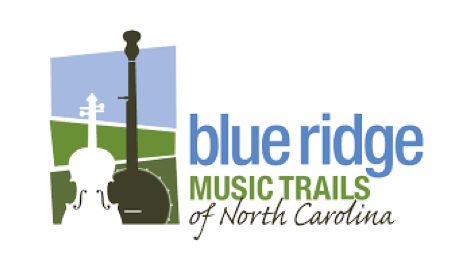Bobby Hicks Says He’d Do It All Over Again
*In honor of the late Bobby Hicks, we share this 2023 story from Down the Road that highlights this wonderful and talented man.
Atop a small mountain in a holler, in the depths of rural Madison County, is an unassuming house. A winding dirt driveway leads to the front door. Entering the mud room, there are a handful of Grammy awards glistening on a shelf in the afternoon sunshine.
“One of my Grammys is on the desk of the [Madison County] sheriff,” 89-year-old Bobby Hicks chuckled in his living-room recliner. “He’s always treated me well, and is only a phone call away.”
Aside from the Grammys garnered throughout his incendiary career as a renowned bluegrass and country music fiddler, Hicks’ stairwell is lined with International Bluegrass Music Association (IBMA) and Country Music Association (CMA) honors. There are also gold and platinum record plaques acquired during his tenure with the Bluegrass Album Band, and with Ricky Skaggs.
“If I was a young man, I’d do it all over again,” Hicks said about his whirlwind life and astounding career.
Born in Newtown (Catawba County) in 1933, Hicks was raised in a musical family. His mother played banjo. One brother took on mandolin, while two others played guitar. The four brothers eventually formed a band, with Hicks picking up fiddle to round-out the group.
“When I was nine years old, my dad brought a three-quarter sized fiddle home one night. He’d bought it from somebody for $12.50,” Hicks noted of his first acquired instrument. “So, I started messing with it, trying to learn how to play it. There were a lot of people who wanted to play in town, and I’d join in the jam with them.”
By the early 1950s, Hicks had made a name for himself around the Piedmont area of North Carolina. Then, in 1954, Hicks was hired as the bass player for Bill Monroe & His Bluegrass Boys. Known as the “Father of Bluegrass,” Monroe was in need of a bassist while touring the Greensboro region. Hicks got the gig and became a full-time member, soon switching back to fiddle for Monroe.
“I was 21 when I went to work for [Bill Monroe]. He treated me like a son, and he always looked after me,” Hicks said. “I lived and breathed the fiddle. And I learned a lot after I went to Nashville [with Monroe] — there were so many good fiddle players there.”
Hicks played for Monroe from 1954 to 1956 before entering the military. Two years later, in 1958, Hicks was honorably discharged and joined back up with Monroe until 1960. From there, Hicks worked with country legend Porter Wagoner. After that, there were a handful of stints playing around the Midwest and Montana.
“Then, I left Montana and went to Las Vegas. I walked into the Golden Nugget [casino] looking for a job,” Hicks said. “I had an empty gas tank in my car and $2 in my pocket — that was all the money I had. Walking into the Golden Nugget, [country star] Judy Lynn was in there, and she was looking for me [to play her Vegas residency].”
Lynn hired Hicks right on the spot. With another gig in his hands, Hicks and his trusty fiddle took on Las Vegas from 1963 through the early 1970s. By 1981, Skaggs asked Hicks to join his band, an invitation that led to an incredible 22-year run in the band, and all while Skaggs became a country music icon throughout the 1980s and beyond.
It was also during this time with Skaggs where Hicks was invited to be part of the immortal Bluegrass Album Band. Created as a murderers’ row of bluegrass masters, the initial group consisted of Hicks, guitarist Tony Rice, banjoist J.D. Crowe, mandolinist Doyle Lawson, and bassist Todd Phillips.
Nowadays, Hicks doesn’t venture too far from his mountaintop home. But, he will — like clockwork for the better part of the last 15 years — find himself down in nearby Marshall, a small county seat mountain town, to perform during the monthly bluegrass jam at Zuma Coffee.
“We’ve had people come to jam from all over the country,” Hicks said. “There’s even been folks from Japan, England, Italy, all over Europe — it’s a pretty special thing.”
Relaxing back into his recliner, with a slight glance over at all those glistening trophies and recognitions adorning his humble abode, Hicks can’t help but be grateful for the life he’s lived, and continues to wander — fiddle in-hand, always ready at the drop of a hat to bust out his beloved instrument for an impromptu jam.
“All I feel really good about is creating a style [of fiddle playing] that everybody likes,” Hicks said in a modest tone. “I just try to be nice to people and treat them like I would expect them to treat me. And I enjoy teaching the younger people that want to learn to play what I do.”
Enjoy more of our Down the Road – Bluegrass and Old-Time Music Guide here.







 Bob Peck - Mountainwater Films
Bob Peck - Mountainwater Films James Madison Mitchell
James Madison Mitchell